Are you tired of consuming high-calorie sugar? Want to switch to a healthier version? If yes, then stevia sugar is the perfect substitute for you.
This blog post will provide you an insight into stevia sugar and five best substitutes that can make your diet healthier.
What’s Stevia Sugar?

Stevia sugar, or stevia, is a natural sweetener made from the leaves of the stevia plant.
This sweetener has become very popular in recent years due to its low-calorie count and versatility.
Unlike white sugar, which is mostly pure sucrose, stevia contains no refined sugars and is often referred to as a “natural” sweetener.
It can be used both as granulated table sugar or liquid form extract, with the same degree of sweetness being achieved in either type.
Stevia sugar is gaining popularity due to its low glycemic index and health benefits over more traditional sugars such as cane sugar or sugar derived from corn syrup, but not all forms of stevia are created equal.
To get the most out of delicious Stevia Sugar, here are some tips on how to choose and use it:
- Read the label: Not all products labeled as “stevia” offer equal amounts of sweetness. The best stevias will have “Rebaudioside A” listed on the label for maximum mildness in flavor. Also be sure to double check Serving Size information – some liquid forms might be three times as potent compared to powder forms; so adjust dosages accordingly per your personal taste preferences.
- Start slow: When replacing white sugar with Stevia Sugar for baking recipes, begin by substituting only half (or less) until desired sweetness is achieved; make sure that it still tastes good. Remember that the longer you cook something sweetened with Stevia Sugar, the less sweet it will become since it isn’t able to caramelize like white sugar can. For this reason, start slow on replacing traditional honey or maple syrup too.
- Master measurements: Since there so many different types of Stevia Sugar out there (granulated form versus liquid drops), it can be easy to misjudge measurements when converting recipes that call for a specific level of sweetness without proper conversion formulas being set beforehand – adjust measurements per your doses preference and always test along the way.
- Taste buds agree (or not): A bit harder than other natural sweeteners like honey or agave nectar when added into hot liquids (tea/ coffee/ etc.), Stevia Sugar creates rather unique flavor notes within certain foodistic experiences; if you’re unsure with how much Sweetner should be added within certain recipes – erring on adding more is better than exploring none at all.. After all – there’s nothing wrong with trying something new if you’re feeling daring.
- Not everyone agrees: Because everyone’s tastes vary and preferences are subjective- don’t feel ashamed in sticking with your regular white/brown sugars instead – remember that their smaller molecular size makes them easier for dissolvability within hot drinks AND they tend carries more heat capacity when used during baking processes – which means great chewy textures without having excess moisture added into a final mixture. However if you would like an alternative – definitely explore different combinations afterwards..
5 Best Stevia Sugar Substitutes to Consider
However, for some users, the aftertaste of stevia may be an unpleasant experience.
This leads many to seek an alternative sweetener that still provides the same calorie-free benefits.
While nothing will fully replace the sugar in terms of taste and texture, there are several from which to choose.
Here are five of the best substitutes for stevia sugar to consider:
1 – Coconut Sugar
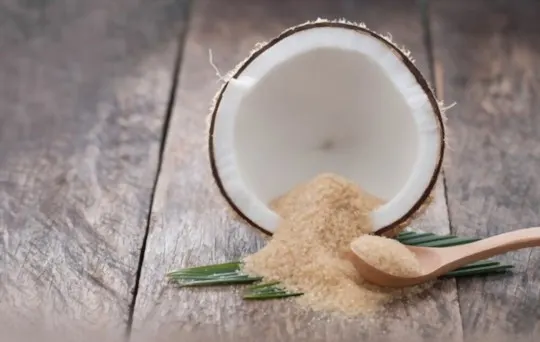
Coconut sugar is derived from the sap of coconut palm trees, making it a natural sweetener that contains minerals and vitamins.
Coconut sugar tastes similar to brown sugar or molasses and is a great alternative for those looking to cut down on their added sugars consumption without sacrificing flavor.
Coconut sugar does have some calories and carbohydrates, but it contains less than other types of sugar or stevia.
Additionally, its glycemic index is lower than that of regular table sugar, meaning its consumption has a milder effect on blood glucose levels than regular white or brown sugars.
2 – Monk Fruit Sweetener
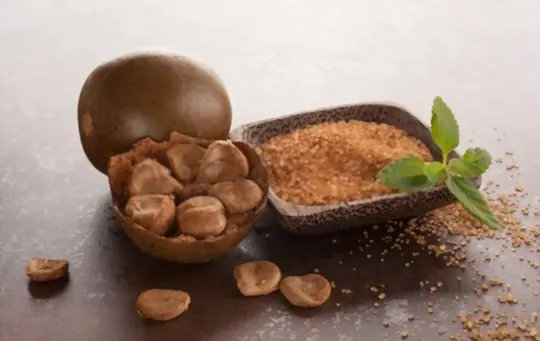
Monk Fruit Sweetener is an all-natural, zero-calorie sweetener that comes from the extract of monk fruit.
The extract has been used in traditional Chinese medicine for centuries and is known to be both calorie-free and safe for most people.
Monk Fruit Sweetener is 100 to 250 times sweeter than sugar and also known as Luo Han Guo.
It does not contain any artificial ingredients, preservatives or flavors like most other sweeteners.
It is also non-GMO, vegan, gluten-free and diabetic friendly – making it a great choice for those looking to avoid sugar or processed sweeteners.
3 – Date Sugar
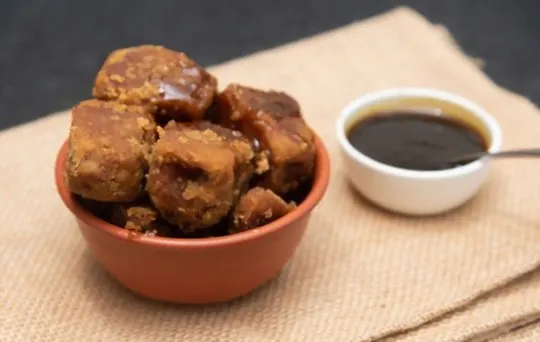
Date sugar is quickly gaining attention as a natural sweetener as it has a lower glycemic index than other commonly used processed sugars.
The flavor of date sugar is distinct from other sweeteners, but generally considered palatable.
Date sugar is made from whole dates that are ground up into a coarse powder; the flavor is similar to that of whole dates but with a bit more sweetness.
Date sugar can be used in most recipes for additional sweetness, adding a hint of fruitiness to the recipe.
This type of sugar should not be confused with date syrup, which is extracted from dates and has more in common with molasses than regular table sugar.
4 – Raw Honey
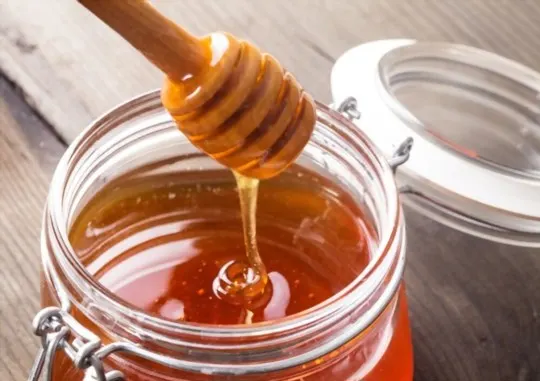
Raw honey has a similar sweetness as Stevia sugar and can be added to coffee, tea, or used in dressing and baking in much the same way.
It is delicious, works as a natural sweetener and a great vegan alternative to sugar.
Raw honey should be bought from reputable sources that promise it is untouched and unprocessed.
There are many different kinds of raw honey varietals to try.
Every one of them have slightly different flavor profiles that make them unique.
When using raw honey you need less than you would with other sweeteners since it is so much sweeter than refined sugar or regular stevia.
Raw honey has healing properties as well, so it comes with some health benefits too.
5 – Maple Syrup
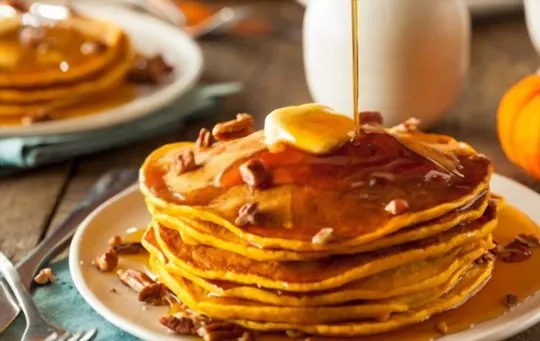
Maple syrup is a delicious natural sweetener made from the sap of sugar maple trees.
It has a unique flavor that some perceive as sweet and earthy and it is often combined with stevia sugar when baked or served as a topping for desserts and other dishes.
It contains about one-fourth of calories compared to table sugar, making it an attractive alternative.
When possible, opt for pure maple syrup instead of flavored varieties, as these contain added artificial ingredients that could detract from the taste or health benefits.
Additionally, be sure to use pure maple syrup only in cold applications such as smoothies or yogurt because it hardens when heated.
Conclusion
As you can see, there are many options available for those looking to substitute pure stevia sugar in their recipes.
Whether it’s a natural sweetener like honey or agave nectar, or a plant-based product like coconut sugar or monk fruit, there’s a good chance you’ll be able to find something that meets your dietary needs and personal tastes.
It’s important to do your research and experiment with different types of sweeteners in order to figure out what matches your palate best.
Ultimately, the choice is yours – so use caution and enjoy responsibly.
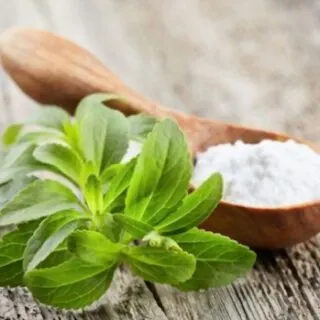
5 Best Stevia Sugar Substitutes to Consider
Ingredients
- 1 – Coconut Sugar
- 2 – Monk Fruit Sweetener
- 3 – Date Sugar
- 4 – Raw Honey
- 5 – Maple Syrup
Instructions
- Choose your preferred substitute from the list of options.
- Organize all of your ingredients.
- Use the proper substitute to cook your recipes.

Carrie is a food writer and editor with more than 15 years of experience. She has worked for some of the biggest names in the food industry, including Bon Appétit, Food & Wine, and Martha Stewart Living.
As the Editor in Chief of IntroChicago.com, Carrie oversees all of the content on the site. She also manages the team of contributing writers and editors, who help to create delicious recipes, helpful tips, and informative articles that you’ll find on the site.
A native of the Chicago area, Carrie is passionate about all things food. She loves trying new restaurants and experimenting with new recipes in her kitchen. She’s also a graduate of the Culinary Institute of America, so she knows a thing or two about food!
